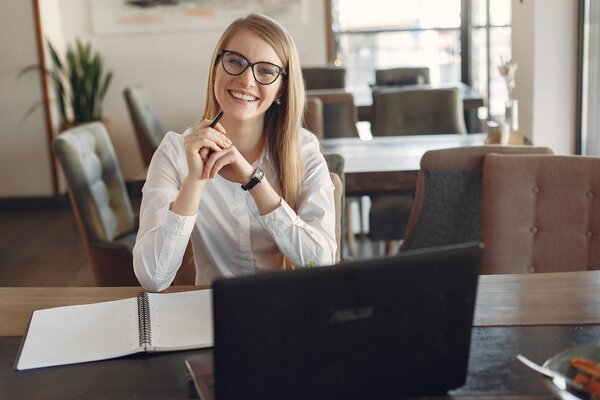Let’s Break This Down Together...
Not declaring income to HMRC can feel confusing and worrying, with penalties and even criminal charges hanging over your head. Many people wonder what really happens if HMRC discovers income they didn’t report.
This article explains how HMRC finds undeclared income, what penalties you could face, and how voluntary disclosure can help reduce the consequences. It also explores the difference between honest mistakes and deliberate evasion, plus practical ways to stay compliant.
Understanding these rules means less stress and fewer nasty surprises from HMRC. Let’s dive in and get clear on how to keep your tax affairs safe and sound!
What Happens When HMRC Discovers Undeclared Income?
HMRC has sophisticated systems to spot when income goes unreported. Accurate reporting of all income is a legal requirement, and failure to do so can trigger further scrutiny. They receive information from banks, employers, pension providers, and even overseas tax authorities.
They can look back up to 4 years for careless mistakes, 6 years for negligent errors, and a whopping 20 years for deliberate tax evasion. HMRC may also receive reports, such as Suspicious Activity Reports, from financial institutions if irregularities are detected.
Once they find undeclared income, they’ll contact you. This may lead to a formal tax evasion investigation. That’s when the clock starts ticking on potential penalties. If you have not already told HMRC about the undeclared income, penalties may be higher.
Punishment for Not Declaring Income UK Tax Explained
The basic penalty starts at 30% of the tax you owe for careless mistakes. This rises to 70% for deliberate errors, and up to 100% if you deliberately concealed information. The penalty depends on the amount of tax unpaid, the nature of the error, and whether the tax was paid late.
On top of penalties, you’ll pay interest on the unpaid tax from the date it was due. Late payment of tax due results in additional penalties and interest charges. Individuals are required to pay tax due promptly, and any tax unpaid by the deadline will accrue penalties and interest.
For serious cases involving £25,000 or more, HMRC might publish your details as a tax defaulter. It’s essentially a public naming and shaming exercise. Failure to pay tax payments on time can also lead to public disclosure.
The most severe cases can lead to criminal prosecution. Potential jail sentences of up to 7 years exist for tax evasion. The maximum sentence for the most serious tax evasion cases can include lengthy prison sentences and an unlimited fine.

How HMRC Calculates Your Penalty
Your penalty isn’t just based on the amount of undeclared tax. HMRC considers whether it was a genuine mistake, carelessness, or deliberate evasion. Penalties are higher if HMRC determines you did not take reasonable care in your tax affairs.
They assess if you came forward voluntarily or only after HMRC contacted you. The former is called unprompted disclosure, the latter prompted disclosure. Failing to notify HMRC about taxable income or gains by the deadline can result in a notify penalty.
How helpful you are during their investigation matters too. Full cooperation can reduce penalties significantly. If you disagree with an HMRC decision regarding your penalty, you have the right to appeal.
The quality and completeness of your disclosure about what went wrong also affects the final penalty amount.
If a dispute with HMRC remains unresolved, you can take your case to the tax tribunal for a final decision.
Providing False Documentation and Its Consequences
Submitting false documentation to HMRC is a serious criminal offence in the UK, covering fake invoices, altered receipts, or any fraudulent documents used in tax returns. If HMRC suspects this, they can launch a full investigation into your tax affairs and examine your records in detail.
Consequences are severe, including unlimited fines, penalties of up to 200% of the tax owed, and possible criminal charges leading to prison sentences. The courts treat income tax evasion and attempts to avoid paying tax extremely seriously.
HMRC distinguishes between honest mistakes and deliberate fraud, with genuine errors sometimes resulting in reduced penalties. However, intentionally providing false documentation leaves little room for leniency and can lead to being publicly named as a tax offender.
Beyond fines and jail time, reputational damage can threaten your business or career, including losing professional licences or access to credit.
Reducing Penalties Through Voluntary Disclosure
If you’ve made a mistake with your tax, choosing to voluntarily disclose undeclared income to HM Revenue and Customs before they find out is always best. An unprompted disclosure can reduce penalties dramatically.
Penalties can drop to as little as 0% for a genuine mistake, 10% for carelessness, and 30% for deliberate errors. That’s a substantial saving.
HM Revenue runs campaigns like the Let Property Campaign. These initiatives are designed to encourage taxpayers to notify HMRC about unpaid or undeclared income and offer more favourable terms for people to disclose specific types of undeclared income.
I once helped a client who hadn’t declared rental income for three years. The client chose to notify HMRC through the proper disclosure process, and by making a voluntary disclosure, his penalty was reduced from 70% to just 35%.
You’ll need to pay the tax you owe plus interest in any case. But the penalty reduction can make a significant difference to your final bill.

Legitimate Ways to Minimise Your Tax Bill
There's a world of difference between tax avoidance (legal) and tax evasion (illegal). Smart tax planning includes using your personal allowance effectively.
Pension contributions and ISA allowances offer tax-efficient ways to save. Use them to their full potential.
Self-employed? Claim all business expenses you're entitled to. This reduces your taxable profit legally.
Consider timing income and expenses strategically where possible. This can help manage your tax liability across tax years.
Tax-efficient investments like Enterprise Investment Schemes offer relief. These can be worth exploring with professional advice.
What To Do If You've Not Declared Income
Don’t panic - but don’t ignore it either. As a taxpayer, it is your responsibility to address undeclared income promptly. The longer you leave it, the worse the potential penalties become.
For minor oversights, you can often amend your tax return online. This option is available within 12 months of the filing deadline.
For older or more significant issues, consider HMRC’s Digital Disclosure Service. Specific campaigns may also be relevant to your situation. If your undeclared income is related to goods or services subject to customs duties, you may also need to address customs reporting requirements.
Getting professional advice from a tax accountant can be invaluable. It’s often worth every penny when navigating these complex waters.

Final Thoughts
The UK tax system largely works on trust, but HMRC has powerful tools to spot inconsistencies. Their penalties exist to encourage compliance rather than punish honest taxpayers.
Coming forward voluntarily almost always results in better outcomes than waiting to be caught. The difference in penalties can be dramatic.
Tax rules change frequently, so staying informed about your obligations is essential. This knowledge helps you avoid costly mistakes.
Pie.tax: Simplifying punishment for not declaring income uk Tax
Getting your tax affairs in order doesn't have to be stressful or complicated. Pie tracks all your income sources in real-time, showing exactly how much tax you owe throughout the year.
Our app sends timely reminders about tax deadlines and obligations. These alerts help you avoid late filing penalties and interest charges.
For those with multiple income streams, our dashboard gives you a complete picture. We cover employment, self-employment, and investment income in one place.
Curious about how we could help simplify your tax life? Take a look at the Pie.tax app to see how it works.











